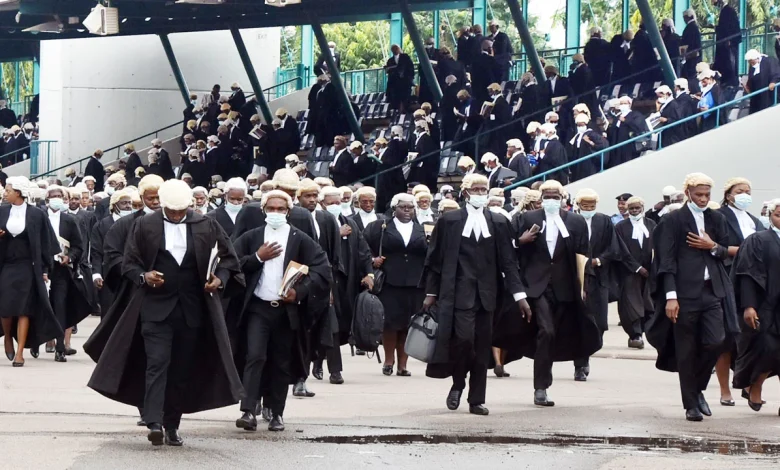Lawyers challenge proposed 5-year term for CJN and other top judges

A recent proposal by the House of Representatives to limit the tenure of key judicial officers in Nigeria to five years has sparked strong opposition from lawyers across the country. The bill, which targets the Chief Justice of Nigeria (CJN), the President of the Court of Appeal, Chief Judges of the 36 states, and other top judges, is seen by many legal professionals as unnecessary.
On Tuesday, January 21, 2025, the House of Representatives introduced a bill that would establish a five-year, non-renewable term for these judicial leaders. Under the proposal, judges appointed to these top positions, including the CJN, the President of the Court of Appeal, Chief Judge of the Federal High Court, President of the National Industrial Court, and Chief Judges in the states and Federal Capital Territory (FCT), would be required to step down after five years in office, or upon reaching the retirement age of 70.
The bill, titled A bill for an act to alter the Constitution of the Federal Republic of Nigeria to provide for tenured appointment of heads of courts at both the Federal and State judiciary, was sponsored by Manu Soro, a member of the House representing the Darazo/Ganjuwa federal constituency in Bauchi State.
The bill seeks to amend Section 29 of the 1999 Constitution (as amended) to introduce a new subsection, specifying that these judicial officers would serve for a five-year term before returning to their previous roles or retiring. Supporters argue that the change will improve efficiency and motivate judicial officers, addressing concerns about overstay in office.
However, many lawyers strongly disagree with the proposal. Mrs. Bridget Edokwe, National Publicity Secretary of the Nigerian Bar Association (NBA), expressed her concerns, stating, “I do not support the proposed five-year tenure limitation for heads of courts, such as the Chief Justice of Nigeria (CJN) and the President of the Court of Appeal. The current practice of retirement upon reaching the mandatory retirement age works effectively well and ensures stability. There is no need to change a system that is not flawed.”
Lagos-based lawyer Marcellus Onah also criticized the bill, warning that limiting judicial terms would lead to political interference. “There is an already fixed age of retirement for justices of superior courts by the Constitution. Making it a five-year term will make it more of political apportionment than appointment based on professional competence,” he said. “States that appoint younger judges will be at a disadvantage if this bill is passed.”
Human rights lawyer Malachy Ugwummadu also questioned the motivations behind the bill, arguing that the current system works well by allowing judicial officers to retire at the age of 70 or after 35 years of service. He warned of the risks of a fixed term: “If you have a Supreme Court justice who is appointed as the CJN and is required to stay for five years, even after becoming senile due to age or health issues, there’s nothing that can be done.”
Ugwummadu suggested that a provision should be added to the bill to allow a judge to step down earlier if they are incapable of performing their duties due to illness or other reasons.
Despite these concerns, the bill remains under consideration by the House Committee on Constitution Review, with debates about its potential impact ongoing. Many legal professionals believe the current retirement system ensures stability and fairness, and any changes should be carefully considered.





